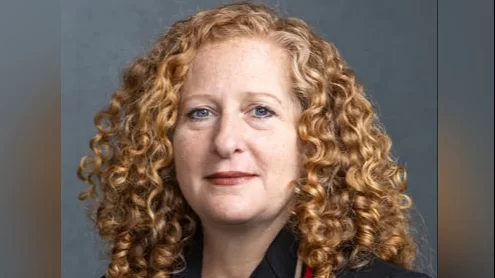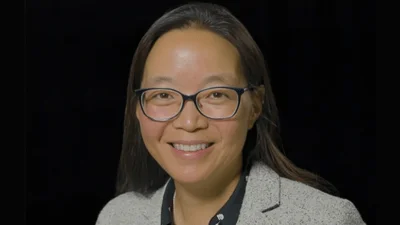Jennifer Mnookin Chancellor | Official website
Jennifer Mnookin Chancellor | Official website
Cicada experts and resources available from UW–Madison
April 10, 2024By Veronica Rueckert For news media More information
A historic double brood of cicadas is expected to emerge this spring, with hatchings centered on the Eastern and Midwestern parts of the United States. Experts from UW–Madison are available for interviews about the biology of the deafening insects and their role in culture and art.
PJ Liesch, the director of the UW–Madison Insect Diagnostic Lab, is one of the experts available for discussions on cicada biology. Liesch is closely monitoring the impact of early spring weather on cicada emergence, stating, “A key factor for the emergence of periodical cicadas is the temperature of the soil at a depth of 8 inches. The soil temperature must reach and exceed 64.5 F, so depending on weather, we could see emergence shifted a bit earlier.” Liesch can provide insights on the timing and distribution of periodical cicadas in Wisconsin and their ecological impacts. Contact: PJ Liesch, pliesch@wisc.edu
Another expert, Daniel Young, a professor of entomology and director of the UW–Madison Insect Research Collection, specializes in insect classification and natural history. Young teaches a course on Introductory Entomology that covers brood XIII cicada emergence. Contact: Daniel Young, young@entomology.wisc.edu
William Brockliss, a classics professor in the College of Letters and Science, sheds light on the poetic significance of cicadas in ancient Greece. Brockliss explains, “As a Greek friend of mine once put it, he knows he’s home when he hears the sound of the cicadas.” He further elaborates on how ancient Greek poets incorporated the sound of cicadas into their works, stating, “While other plant and animal species contribute to the visual environment of Greece and the wider Mediterranean, cicadas are an ever-present constituent of the region’s auditory environment, at least in the summer.” Contact: William Brockless, brockliss@wisc.edu
For further exploration into the world of cicadas, UW–Madison offers resources such as a new online platform where visitors can access a historic cicada recording from the Library of Congress, gain insights into cicada biology, and learn about the history and future of periodical cicadas in Wisconsin. The site was developed by PJ Liesch and can be accessed at https://cicadas.wisc.edu/. Contact: PJ Liesch, pliesch@wisc.edu
In addition, the Department of Entomology hosts the Insect Ambassadors, a graduate student-led organization aimed at sharing the wonders of bugs with the broader community. Contact: Emma Terris, eterris@wisc.edu
These resources and experts from UW–Madison provide valuable information and insights into the fascinating world of cicadas, offering a deeper understanding of their biology, cultural significance, and historical connections.






 Alerts Sign-up
Alerts Sign-up